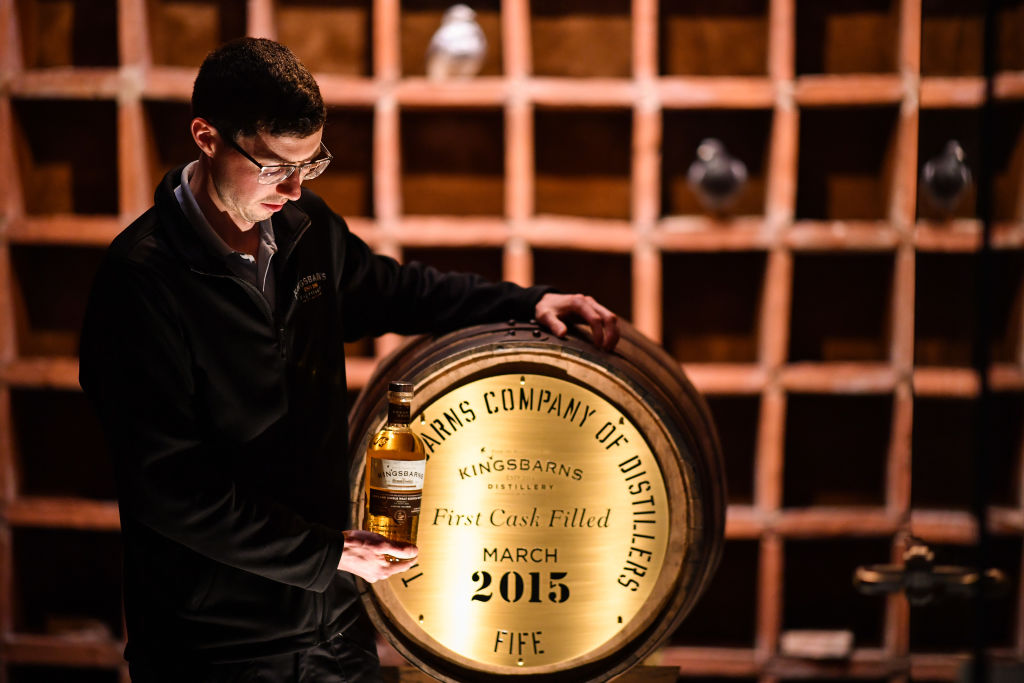A tipple could help Hunt through his budget and investors through further inflation

Whisky casks are quickly growing into one of the most popular “alternative assets”. The older the cask, the better it tastes, giving you a strong return that hedges against inflation, writes Simon Aron
Next week, Jeremy Hunt will be forced to deliver a budget while inflation is still at over 10 per cent. It is a tradition that the Chancellor is allowed to take a drink while delivering his fiscal plans for the next year; Hunt might be forgiven for reaching for a dram – or four. And savers and investors might also be tempted to cushion the blow of the impact on their savings and portfolios. But as we come to terms with the new economic normal, whisky aficionados and novices alike may find comfort in more than one way in Scotland’s biggest export.
While classic cars, fine art, and rare wine are usually the options that come to mind as “alternative assets”, another commodity is becoming increasingly popular: cask whisky.
Over the last decade, savers and investors have increasingly turned to the whisky sector as a safe haven from economic uncertainty. Anticipated to be worth $86.1bn globally by 2027, growing interest in the market has turned whisky casks into one of the market’s fastest-growing “alternative assets”.
It’s not just sales for the pure pleasure of it. Customers can invest in whisky by buying a “cask” or barrel, and, as the spirit matures, like wine in a bottle, the whisky develops flavour and complexities. This maturation, paired with the distillery’s reputation and the cask’s rarity, drives prices up, providing investors with a return on investment. When an investor wants to exit, they sell the cask to a bottler, hopefully for a profit, who, in turn, bottles the whisky to be drunk. Scotch and Japanese whiskies are becoming the most popular, with at least 20 more distilleries opening in Scotland in the last six years.
The competition between suppliers is stiff between Scotch whisky and its Irish counterpart. Sales at Jameson, the fastest growing Irish whiskey producer, were up 11 per cent in its first-half results, after a record 2021-22 as well.
Gold is often the asset many turn to in times of economic turmoil. But as inflation rises, casks offer a tangible asset-backed investment, offering a safe store for your wealth. Like other alternatives, whisky isn’t affected as much by headwinds or market trends in the way that traditional investments are. It is not tied to the success of financial or global markets but is driven by supply and demand dynamics and investor sentiment, making the wider economic situation somewhat irrelevant.
With more and more people investing in the industry, casks are becoming rarer, driving prices up. The average price of a 12 to 18-year-old cask has doubled, with some brands even quadrupling over the last five years.
Cask sales in 2022 performed better than the FTSE all-share index. If the government keeps the freeze on alcohol duty, it will help encourage this growth and ensure that the tax system nurtures whisky investment.
It’s an investment which requires a bit of homework, but one which can hold firm. A mix of unhelpful players – ranging from overly-exuberant salespeople to downright scammers – have been known to inflate the prices of casks to unreasonable heights. A recent report by Knight Frank highlighted a number of speculators coming onto the market hoping to flip a cask and make a quick buck.
Cask whisky isn’t something you should look at to make a quick return on. It hedges against inflation, but isn’t an investment which has short-term results. Investments take time and patience. The older the cask, the rarer it becomes and the better it tastes, giving you a stronger return.
